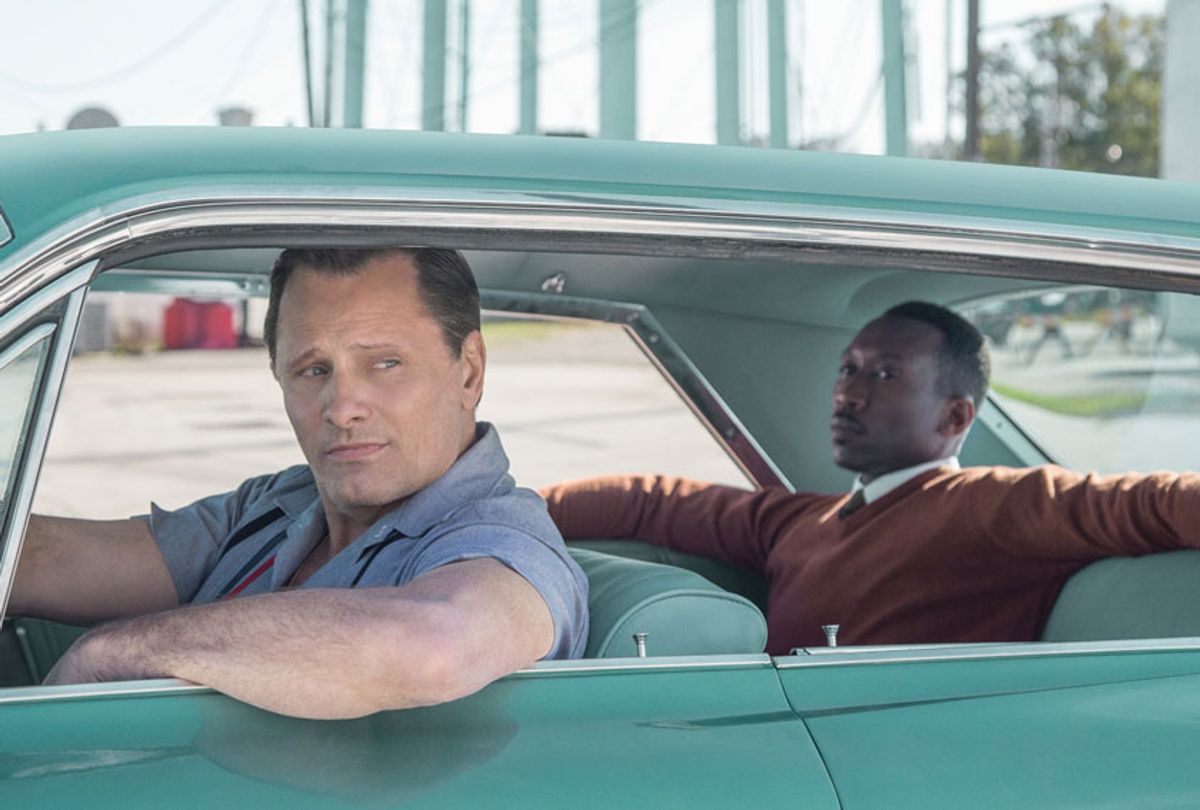In a year that saw the release of “Black Panther,” “If Beale Street Could Talk,” “BlacKkKlansman” and “Widows,” the Academy of Motion Picture Arts and Sciences incredibly chose a bland “magical Negro” film, “Green Book,” as the best movie of the year. I despise magical Negro films that convert the real horrors of racism into white folks’ feel-good stories. The story arc includes a small amount of unpleasantness, but in the end, the oppressed always rescues or enlightens his white oppressor. “Green Book” is the latest example of using the magical Negro literary trope to deny powerful acts of African self-determination and diminish the African role in shaping America.
White writers created the magical Negro character. The character is usually impaired by discrimination, disability or social constraint. He or she often has no past and seems to only materialize to assist the white protagonist. The character of color usually has some sort of magical power. Black men, due to their frequent depiction as beastly, often become ghostly in these magical lies. The black male simply ignores his history and any acts of white supremacy. He has no roots, no grounding. In that context, black anger has no legitimacy, no real justification. The only real characters are white. The characters are loyal, ambitionless sidekicks without their own goals and dreams. The magical Negro provides writers with a simple method for making their audiences happy.
There is nothing improper inherent in creating magical fictionalized characters that are not likely to exist in the real world, and many black artists have used it to illuminate the racist history of the United States. However, the film “Green Book” is a destructive lie that distorts and softens the murderous history of white racism in America while minimizing the suffering of oppressed people. From D.W. Griffith’s “Birth of a Nation” to the present, Hollywood has been a bastion of racism and sexism that repeatedly rewrites history at the expense of everyone except a few white men. The oppressive circumstances that made a Green Book necessary for blacks to travel in the United States are barely mentioned in this (Best) film. However, should a future African American filmmaker try to make a film that explains the oppression that the original Green Book symbolized, producers will discourage that filmmaker with, “We have already done that story.”
The “magical Negro” stories dilute and belie the atrocities that whites have inflicted on people of color. And this film reduces the life of musical genius Dr. Don Shirley to that of a lonely man without a home or family of his own, a man who aids his driver, a racist white man, in writing love letters and overcoming his racism. Shirley is depicted as having no family or friends with whom to spend his holiday or share his musical touring experience. Really? Shirley’s family has called the film, “a symphony of lies.” The film provides no real motive for touring the South or entertaining whites in segregated venues.
White men still control America’s film industry, and giving “Green Book” the best picture award is just another slap in the face of the oppressed. “Green Book” is not a memorable film, merely a cast-shifted version of “Driving Miss Daisy.” I support black actors and cannot fault earning a livelihood; however, at some point, integrity has to play a role in the telling of our stories. Mahershala Ali is an accomplished actor worthy of his awards and our respect; however, I implore Mr. Ali and all African American actors to thoroughly read and research scripts before accepting roles and to be wary of roles and awards bestowed by people who want to substitute stereotypes for actual reflections and comments on acts of human oppression.
A friend pointed out that the Smithsonian channel has produced a documentary film illuminating the need for and use of the Green Book by African Americans. No matter how well-intended the motives of the Smithsonian filmmakers, their film will never rival the audiences drawn to the Hollywood film, “Green Book.” The film is the winner of 2019’s best motion picture Academy Award. The bestowing of that prestigious award validates a subtle white-washing of factual stories that tarnish the U.S. myth of exceptionalism and equality. This Hollywood depiction of racism in America allows whites to leave the theater with their privilege intact and guilt-free. This film draws its title from a book that was published by African Americans for African Americans because of the legal denial of equal access to public accommodations by whites. This whitened Hollywood film appropriates the title and then rewrites history to tell a story that barely acknowledges the extent of racist treatment of African Americans during this era. The title and content mark this as an afro-centric story, but this fictional appropriation of Dr. Don Shirley’s story won the best original screenplay award without including any African American writers or artists except Ali on its creative team. It should be noted that Octavia Spencer is an African American actor listed as executive producer of “Green Book”; nonetheless, this film ignores the historical injustices that created the need for a Negro travel guide, and, sadly, googling “Green Book” will lead to several entries on the Hollywood film, before any mention of U.S. citizens denied fair and equal treatment under the law due to the color of their skin. Watching a Smithsonian documentary may be informative, but it is preaching to the choir. On the other hand, films like “Green Book” conceal national atrocities, dumb down, distort or openly lie when depicting important portions of the nation’s history, while concomitantly spreading misinformation to international audiences, insinuating that African Americans have been accepting and continue to happily accept white oppression with little or no effort to create self-determined lives.

Shares